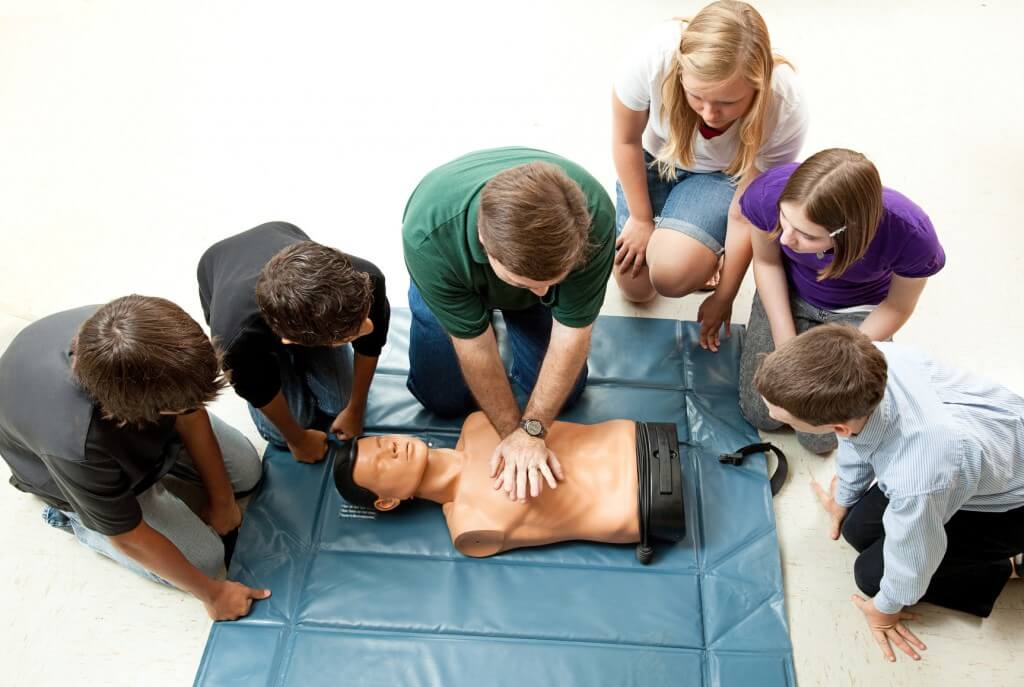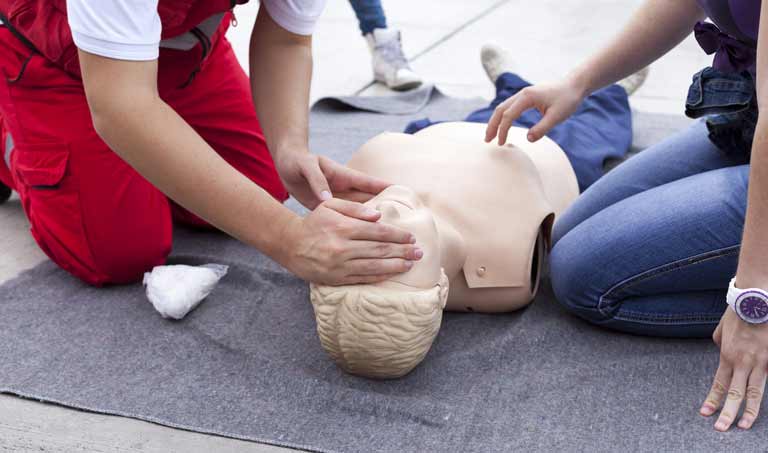Introduction
In a world where crashes can happen at any moment, understanding how to respond properly can be the difference between life and death. Cardiopulmonary resuscitation (CPR) is an essential ability that everybody should think about discovering. But with so many choices offered, browsing the globe of CPR training courses can feel overwhelming. So, which one is right for you? This write-up aims to lead you with the various CPR courses available, aiding you pick the most effective suitable for your needs.

Understanding mouth-to-mouth resuscitation and Its Importance
What is CPR?
Cardiopulmonary resuscitation (CPR) is an emergency treatment performed on people whose heart has actually quit defeating or that have ceased breathing. It involves upper body compressions and rescue breaths to maintain blood flow and oxygenation until sophisticated medical help shows up.
Why is mouth-to-mouth resuscitation Important?
The significance of mouth-to-mouth Fremantle First Aid Course Near Me resuscitation can not be overemphasized. Stats reveal that prompt CPR can increase and even triple a target's opportunities of survival after cardiac arrest. Learning mouth-to-mouth resuscitation not just outfits you with the skills to save lives but likewise raises your confidence in emergency situations.
When Must You Utilize CPR?
CPR should be initiated when an individual is less competent, not breathing normally, or showing indications of severe distress. Having the ability to determine these scenarios rapidly can save valuable minutes.
Navigating the World of Mouth-to-mouth Resuscitation Courses: Types Available
Basic Life Assistance (BLS) Courses
What is BLS?
BLS programs are developed for doctor and experts that require to maintain certification in fundamental life support methods. These courses cover essential abilities such as high-grade upper body compressions, air passage administration, and utilizing an Automated External Defibrillator (AED).
Who Ought to Take BLS Courses?
If you're a medical care employee, caregiver, or someone aiming to boost their clinical knowledge, a BLS program might be suitable for you.
Heartsaver ® CPR/AED Courses
What are Heartsaver ® Courses?
The Heartsaver ® program offers training courses tailored for nonprofessionals. It focuses on adult, youngster, and infant CPR strategies in addition to AED usage.
Who Should Think about Heartsaver ® Courses?
These courses are excellent for teachers, trains, parents, and anyone in charge of others' safety who might require to act in an emergency situation situation.
First Aid Course vs. Emergency Treatment and Mouth-to-mouth Resuscitation Course
What Does a First Aid Course Cover?
A first aid course generally covers the fundamentals of treating injuries such as cuts, burns, fractures, and choking incidents without focusing on resuscitation methods.
Why Incorporate Emergency treatment with CPR Training?
Combining emergency treatment training with a CPR course equips you with comprehensive emergency situation feedback skills. By recognizing both emergency treatment and resuscitation methods, you'll be much better prepared to handle various emergencies.
Advanced Cardiac Life Support (ACLS)
What is ACLS Training?
ACLS training exceeds basic life assistance by consisting of sophisticated clinical skills like administering medicines and handling respiratory failure.
Who Needs ACLS Certification?
ACLS accreditation is usually required for healthcare specialists operating in vital care setups such as hospitals or emergency situation rooms.
Choosing the Right Course for You: Factors to Consider
Your Level of Experience
Before joining in any type of program, analyze your existing degree of knowledge relating to first aid and mouth-to-mouth resuscitation techniques. Beginners may gain from starter programs like Heartsaver ®, while experienced people may opt for First Aid Course Newcastle even more extensive training like BLS or ACLS.

Your Responsibilities
Consider your role in your neighborhood or work environment. If you're responsible for others' safety-- like a trainer or teacher-- you might want to spend time in detailed emergency treatment and mouth-to-mouth resuscitation training.
Course Format: In-Person vs. Online Options
In-Person Training Advantages
- Hands-on experience Immediate comments from instructors Networking opportunities
Online Training Advantages
- Flexibility Convenience Often less costly
Understanding Accreditation: What You Need to Know
Duration of Certifications
Most accreditations last between 2 to 3 years prior to needing revival; however, this varies by organization.
Recognized Organizations Offering Certification
Several organizations offer trustworthy accreditation programs:
- American Heart Organization (AHA) Red Cross National Safety and security Council (NSC)
Finding Quality Training Providers
Researching Regional Options
Look right into neighborhood medical facilities or community centers offering emergency treatment training courses to find hassle-free choices near you.
Online Resources
Many companies supply online training modules that supply qualification upon completion-- an excellent alternative if time restraints are an issue.
Costs Related to Different Courses
|Training course Type|Ordinary Price|| ---------------------|----------------|| Fundamental Life Support|$100 - $150|| Heartsaver ®|$50 - $80|| First Aid Just|$60 - $100|| ACLS|$200 - $300|
How to Get ready for Your Course
Pre-Course Recommendations
Before attending class:
Review any supplied materials. Wear comfortable clothing. Bring any type of required products provided by your instructor.What Takes place After Completion?
After effectively completing your picked program:

Common False impressions About First Aid and Mouth-to-mouth Resuscitation Training
Misconception 1: Just Health Care Professionals Need This Training
This could not be additionally from the fact! Everybody can take advantage of understanding just how to provide emergency treatment or do CPR!
Misconception 2: I'll Never Have To Make Use Of It
Emergency situations occur suddenly; being prepared is constantly wise!
FAQs Regarding First Aid Certificates & Courses
How long does it require to complete a typical first aid course? A lot of emergency treatment programs take about 4 hours but can differ depending on web content depth.
Will I obtain a certification after completing my course? Yes! Many trusted organizations offer certificates upon effective completion.
How usually do I require to renew my certification? Generally every 2 years; talk to your accrediting organization.
Can I take these courses online? Definitely! Lots of organizations supply on the internet alternatives permitting flexibility.
Are there age needs for taking these courses? Usually no age restriction exists; nonetheless, parental approval could be required under specific circumstances.
Do companies require workers to have these certifications? Several employers do choose personnel learnt very first aid/CPR-- it shows dedication in the direction of workplace safety!
Conclusion: Your Journey Begins Now!
With so many alternatives available when it comes down picking which training course matches best-- whether it's Basic Life Support (BLS), Heartsaver ®, Advanced Cardiac Life Assistance (ACLS), or perhaps just basic Emergency treatment-- the key takeaway stays clear: Taking positive actions towards boosting your knowledge base around first aid & & cardiopulmonary resuscitation will inevitably empower YOU! By investing time right into browsing the world of CPR courses sensibly today makes certain readiness tomorrow-- due to the fact that every second counts throughout emergencies!